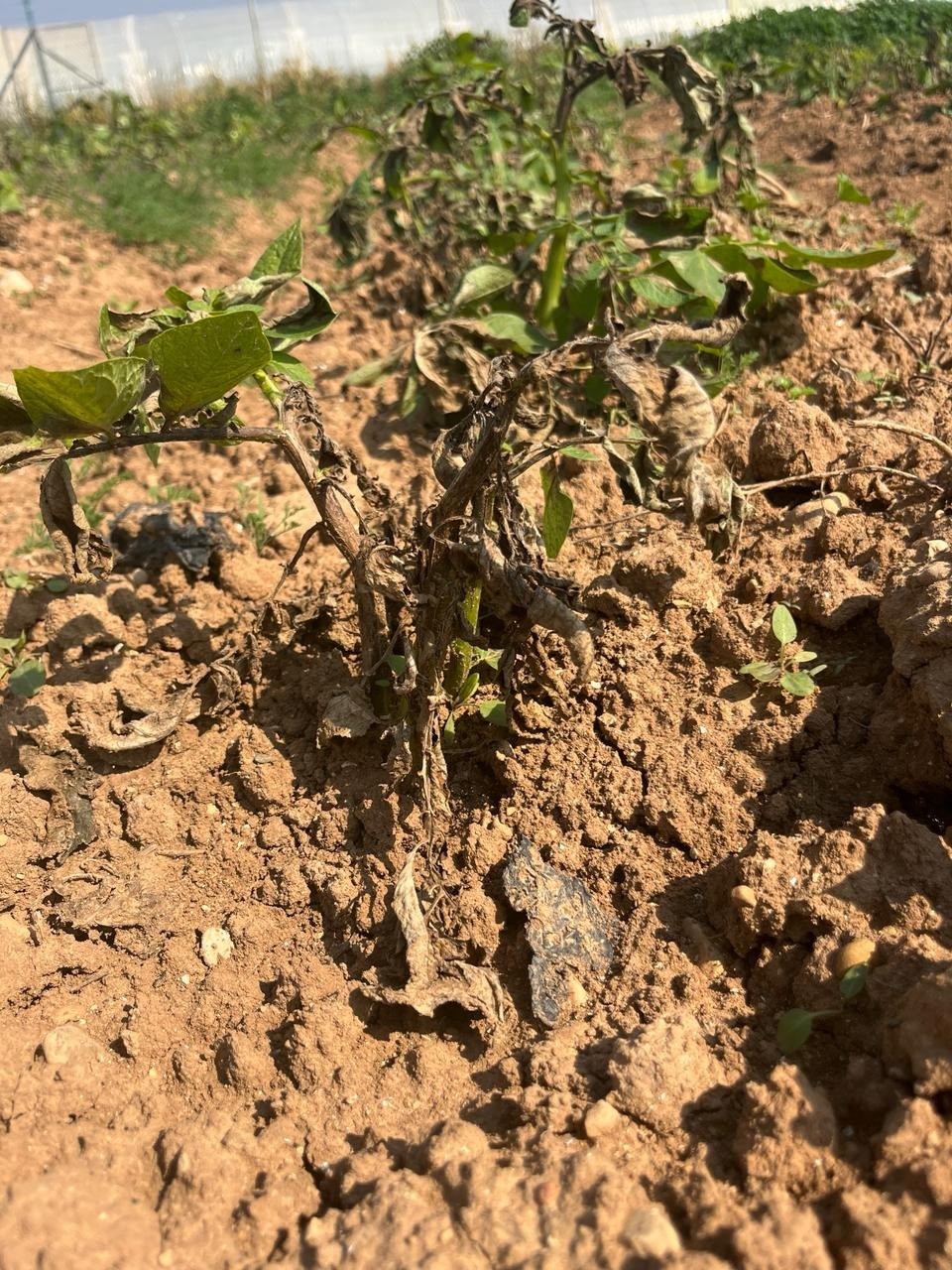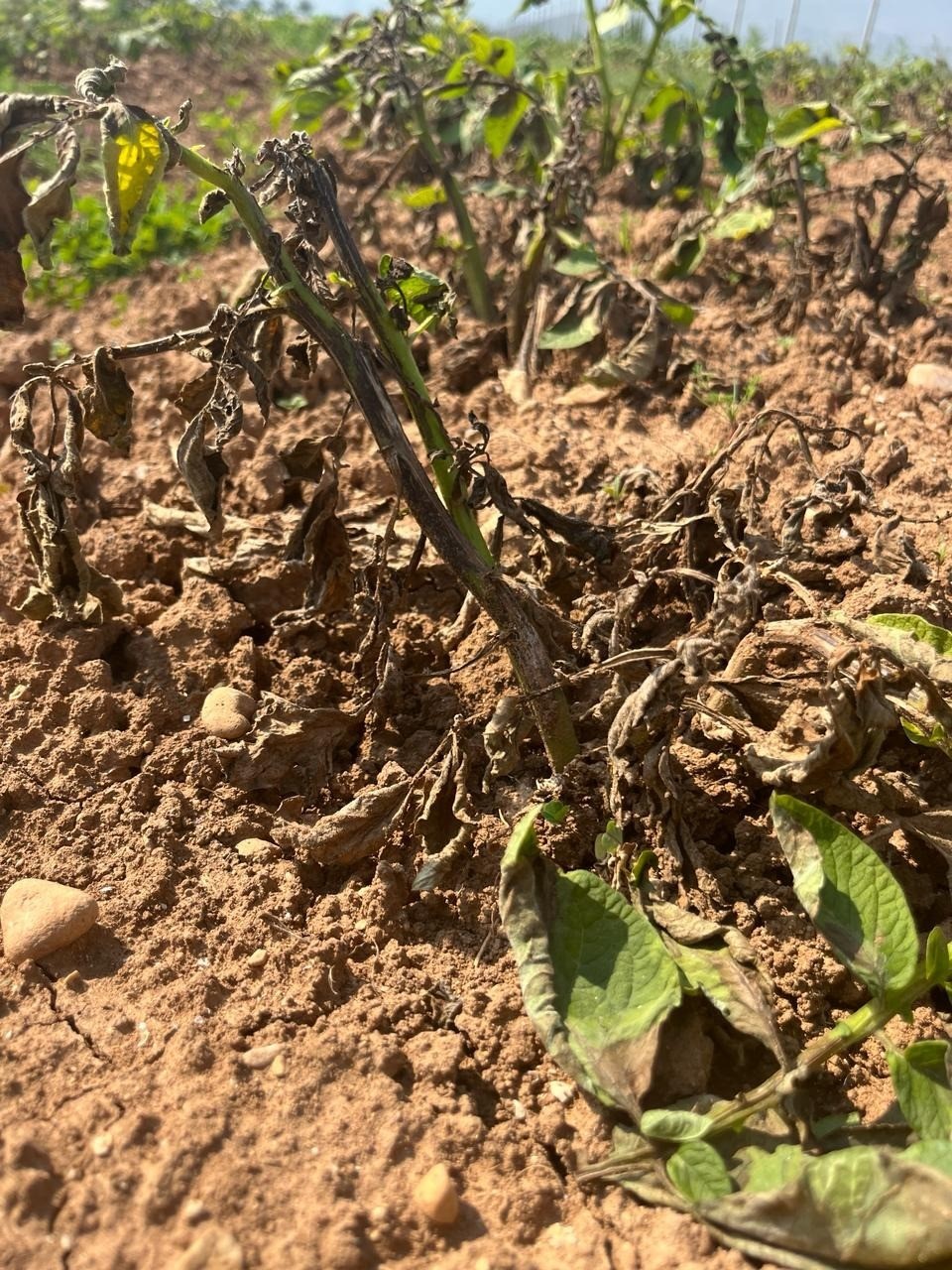AMMAN —The Jordan Valley has witnessed a significant spread of the
late blight disease among potato crops, resulting in the destruction of most
crops and causing substantial losses for farmers. Initial estimates indicate an
infection rate of approximately 80 percent, posing a significant challenge for
farmers and making it difficult to compensate for the losses caused by this
epidemic.
اضافة اعلان
To address this challenging situation, the Ministry of Agriculture
has initiated damage assessment operations, aiming to provide support and
assistance to affected farmers. Plans are underway to organize detailed
assessments to identify affected farmers, damaged areas, and infection rates,
to take necessary measures to deal with these difficult circumstances,
according to Ministry Spokesperson Lawrence Majali.
Majali emphasized that the disease affecting potato crops does not
pose a threat to consumer health, however, its spread has severely devastated
crops and was observed during the rainy period that lasted for more than two
weeks.

The outbreak of the late blight disease is attributed to the moist
weather conditions and continuous intermittent rainfall over a prolonged
period, leading to farmers' inability to carry out preventive spraying
operations.
Despite the disease's impact on production quantities per unit
area, large areas planted with potatoes in the Jordan Valley have managed to
compensate for the production shortfall. Consequently, there are no concerns
about potato abundance in the markets, especially during the blessed month of
Ramadan.
The Ministry of Agriculture is working diligently to provide
support to affected farmers and improve preventive measures to prevent such
occurrences in the future while ensuring the continued availability of potatoes
in the markets.
Additionally, the Ministry clarified in a press statement recently
that potato quantities in Jordan exceed domestic demand, as the daily need for
potatoes is 400 tonnes. The average quantities supplied to central markets were
487 tons, with 421 tons daily for each of January and February, respectively.
The quantities supplied to markets exceed market needs, evidenced by exports
averaging 800 tonnes per month.
The Ministry further pointed out that price indicators would remain
moderate, with low and moderate potato prices delaying harvesting operations
among farmers. Potato prices ranged from 30 to 40 cents per kilogram during
January and February.
The Ministry urged cooperation and patience from citizens in
dealing with these losses alongside farmers, emphasizing the importance of
avoiding imports. In the past five months, farmers have incurred significant
losses due to oversupply, resulting in lower potato prices.

Director of the Farmers Union, Mahmoud Al-Oran, stated that the
latest amendments to the Risk Fund are supposed to cover general cases, and its
role must be activated. Determining whether these cases are general or
individual is the responsibility of a specialized committee. Al-Oran stressed
the need for immediate and swift decisions to achieve sustainable development
and fulfill the Fund's purpose, away from bureaucracy.
Fairness to farmers
Oran also called for a review of the legislation and regulations
governing work in the agricultural sector and the central wholesale market
system. He emphasized that auction prices should start at cost, as it is
illogical for the cost of the potato box to be JD3 and the auction to start at
JD0.5, ending at JD1, causing significant losses to farmers. He also stressed
that sales should be based on weight rather than parcels to ensure fairness to
farmers.
The Ministry's statement concluded by assuring that the late blight
disease and other fungal diseases do not affect consumer health and that it
continues to monitor and address agricultural challenges to ensure market
stability and food security.
Read more Features
Jordan News




